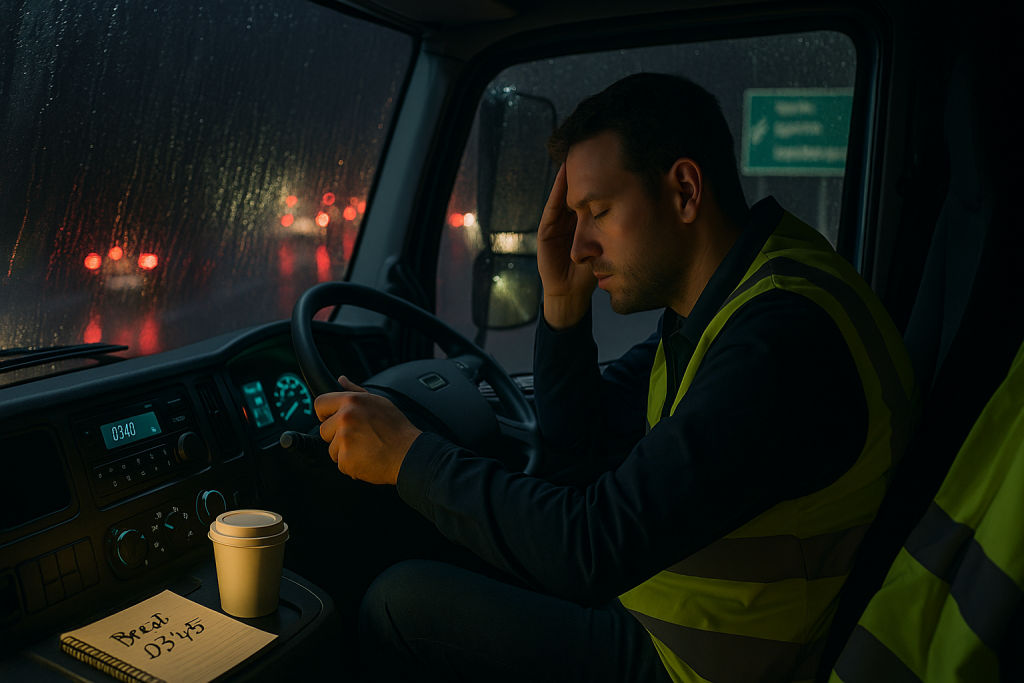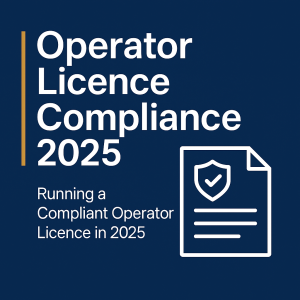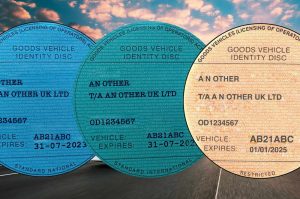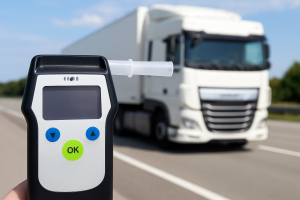“Too Tired to Drive?”
Drivers rarely want to say “I’m too tired to drive.” Some employers are happy not to ask. That silence is dangerous. RoSPA estimate that fatigue may contribute to up to 20% of road crashes in Britain — a risk on par with drink-driving and speeding.
1) The driver’s responsibility
The law doesn’t let drivers off the hook. The Highway Code (Rule 91) is explicit: do not start a journey tired; plan proper rest; stop if you become sleepy.
- Do not begin a journey if you’re tired.
- Plan enough breaks (at least 15 minutes every two hours).
- If you feel sleepy, stop. Full stop.
Ignore this and cause a fatigue-related crash and you could face charges such as dangerous driving or, in the worst cases, causing death by dangerous driving.
2) The employer’s duty of care
Employers can’t dump everything on the driver. Under the Health and Safety at Work etc. Act 1974, they must manage fatigue risks. The HSE’s position is blunt:
“The legal duty is on employers to manage risks from fatigue, irrespective of any individual’s willingness to work extra hours… Compliance with the Working Time Regulations alone is insufficient to manage the risks of fatigue.”
So when a driver says “I’m too tired to drive”, the correct response is to:
- Reschedule or delay the work; provide cover where possible.
- Record the fatigue report and do not penalise the driver.
- Review shift patterns and workload to reduce recurrence.
Ignoring a fatigue report risks criminal liability, a Traffic Commissioner Public Inquiry, and potential loss of Transport Manager repute.
3) Why fatigue is so deadly
RoSPA summarises the risk: police reports record fatigue in a small percentage of fatal and serious crashes, but research shows the real figure is likely far higher — up to one in five collisions. Fatigue-related crashes are often worse because tired drivers may not brake or react at all.
- Highest-risk periods: 02:00–06:00 and 14:00–16:00.
- Monotonous, long-distance driving increases risk.
- Commercial operations (HGV/PCV) are especially exposed.
4) If you tell your employer you’re too tired to drive
Say it clearly and early — and if possible, put it in writing (text/email/log). Your employer must act. If they pressure you to continue and an incident occurs, liability won’t end with the driver.
5) Practical guidance for drivers
- Speak up. Report fatigue honestly; document it.
- Treat breaks as non-negotiable. Legal minimums are not a guarantee against sleepiness.
- Protect yourself. Keep evidence of any report if you’re pressured to continue.
Need a refresher on fatigue and safe driving? Build it into your CPC hours with our live online modules.
Conclusion: end the silence
Fatigue isn’t a personal failing; it’s a safety-critical hazard. Drivers have a duty not to drive tired. Employers have a duty to remove the pressure and manage the risk. The official guidance leaves no wiggle room:
“Driving when you are tired greatly increases your risk of collision. Make sure you are fit to drive. Do not begin a journey if you are tired. Get sufficient sleep before embarking on a long journey… Plan your journey to take sufficient breaks. A minimum break of at least 15 minutes after every two hours of driving is recommended.”
“Fatigue results in slower reactions, reduced ability to process information, memory lapses… Fatigue can lead to errors and accidents.”
Employers should ensure drivers are fit to drive, including that they are not suffering from fatigue, which impairs reaction time, vigilance, alertness and concentration.
RoSPA also note that professional drivers are over-represented in sleep-related collisions, with around 40% of sleep-related crashes involving commercial drivers.








